Do you find yourself running to the pantry every time you feel bored? Even when you’re not hungry? This blog post will give you practical advice for how to stop boredom eating and develop other healthy coping mechanism to use instead.

Why Do We Eat When We Are Bored?
Boredom eating is actually a form of emotional eating. It functions many times in the same way that eating when we’re stressed or anxious does. We are feeling something (bored, stressed, anxious, etc) that we don’t want to feel. Food typically makes us feel good so we turn to that.
Now, emotional eating in itself isn’t BAD. It’s actually a very normal thing. However, it’s important to understand that it’s a spectrum. On one end of the spectrum you have eating for pleasure and enjoyment (say you just made cookies and you’re enjoying a delicious, warm gooey one or you’re out to dinner and that plate of pasta is just bringing you so much joy!) and on the other hand you’re we have eating for sedation or punishment.
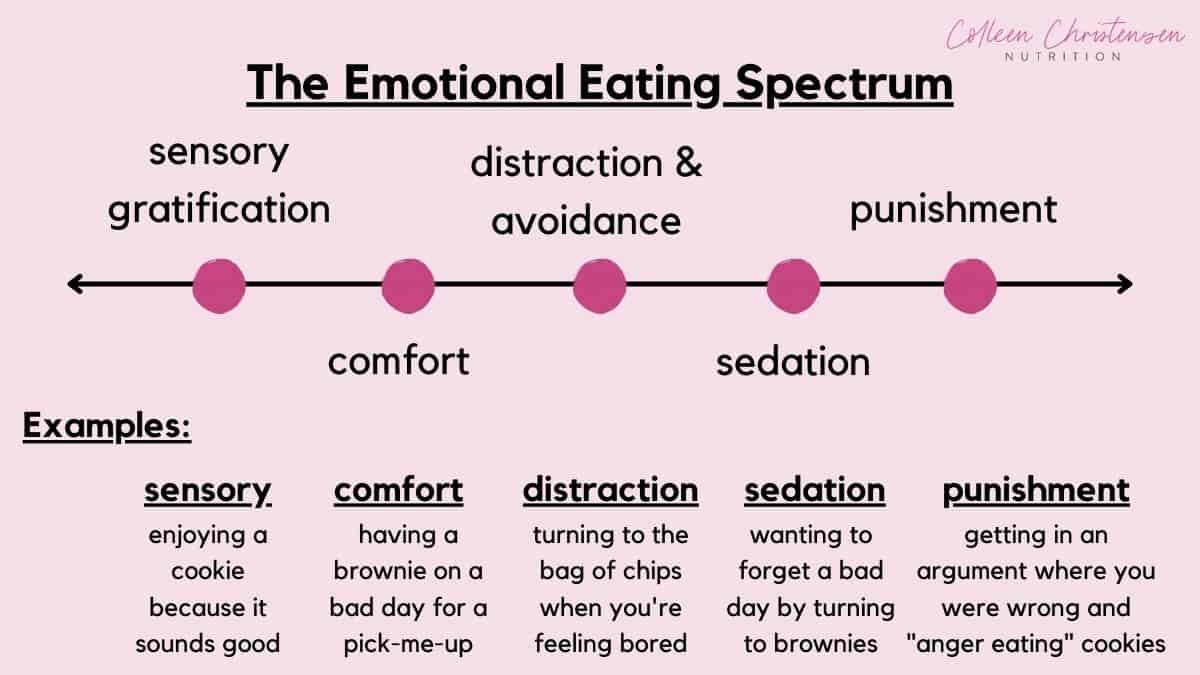
It’s 100% okay and NORMAL to have a brownie on a bad day or when you’re bored for a little “mood boost” even if you aren’t feeling biological hunger cues. But it’s another thing when we expect that brownie to FIX our problems all together or eat in a way that makes us feel worse after (like binge eating).
Food SHOULD be emotional. It should bring you joy. You deserve to enjoy it! It’s not just nutritional value.
When Does Boredom Eating Become A Problem?
Boredom eating can become a problem when it’s your only coping mechanism (what you do in response to handle a certain feeling or emotion- in this case boredom) or if you’re not feeling great as a result of it (mentally or physically).
Remember, boredom eating is normal we ALL do it and it’s nothing to be ashamed of. However it is important, like I said, to develop other coping mechanism to use when you’re feeling bored VS relying on food.
Tips For How To Stop Boredom Eating
Tip #1: Get Your Emotions In Check
In order to be able to stop eating when bored you have to be able to identify the feeling of boredom. It sounds silly, I know, but it’s so key! As humans we don’t like to feel negative emotions. That’s just how we are wired. So, you may turn to food without realizing you’re even bored!
To begin getting in touch with your emotions just ask yourself “How am I feeling?” Sit with that. Process it. If you’re not sure what you’re feeling I highly recommend journaling as a way to help process and get in touch with your emotions. Just write down what is coming to your head and things will start to piece together. There is no right or wrong way to do this- just WRITE!

Starting a meditation practice has also been so transformational in my own ability to feel my feelings. I’d highly recommend looking into it! Now, I’m a super type-A, high strung person and never thought meditation would “work” for me…but I was SO wrong! Try doing the 7 day intro to meditation that’s on the Calm App. That’s what I started with! I also did work with a meditation coach, Marisa Hohaia, to really dive into the work.
Tip #2: Evaluate Your Hunger
I’m a big fan of something called “The Hunger Scale”. This is one of the methods that I reach inside of The SociEATy. The hunger scale i a tool that helps you to identify how hungry or full you are. I have an entire blog post on how to use the hunger scale but to put it simply ask yourself “Am I feeling hungry?”.
If you need a copy of the hunger scale you can download my free e-book, The Ultimate 5 Step Guide To Food Freedom, which includes it!
You also want to ask yourself when the last time you ate is. If it’s been a while and you’re not physically feeling hungry it may still be a good idea to give your body nourishment. This is using what I call “practical hunger“. Our bodies like to have a steady stream of energy throughout the day, so if it’s been a few hours since you last ate it may be a good idea to offer some nourishment.
If you’re feeling a specific craving VS hunger I recommend honoring that craving. We know that when we restrict food it likely ends up in us eating MORE of that food. When we restrict food we increase the brain’s reward response to the food and increased our drive to eat it. I chat way more about this and the science behind it in my blog post on food obsession.

Tip #3: Create A Boredom Eating Toolkit
This is another tool that I teach inside of The SociEATy and we use it for all types of emotional eating, including boredom eating. Here is what you want to do:
- Create a list of 3-5 things that you can do when you feel a specific emotion, in this case boredom. Be realistic about this and think of things you have on hand. I also suggest having an option or two that requires nothing, so that you can do it anytime, anywhere! This is the basis of your “toolkit”.
- Keep this list handy (screenshot it and keep it on your phone, keep it flagged in your journal, etc).
- Turn to this list once you’ve identified your emotion and assessed your hunger.
- If you’re bored and not actually feeling hungry, take part in one of these activities on the list for 5-10 minutes (don’t be rigid on the amount of time, just do one of the activities!) and then re-assess your desire for food.
- If you’re still wanting to eat, EAT! This is SO SO key! You want to do so in a way that you still feel present and not switching into “autopilot mode” and zoning out (this can lead to binge eating). I suggest using a mindful eating exercise to help you stay present.
Tip #4: Give Yourself Grace
If you catch yourself in the pantry with your arm elbow deep in the box of Cheez Its take a deeeeeeep breath, gorgeous and don’t sweat it. Now, I don’t want you just to be like “Welp, it happened, whatever!” I want you to sit with it. To reflect. I truly believe that one of the top reasons people feel like intuitive eating and food freedom don’t “work” and they go back to dieting and having food rules is because they skip this step.
Heck, even I skipped this step at first! But it’s so so important. I’ve learned so much in my journey to food freedom that I’ve made it my mission to help others skip all of the trial-and-error that I went through so that they can find freedom faster. Because it’s SO good! That is exactly why I created The SociEATy membership community.
I recommend turning to your journal if you do catch yourself boredom eating and answer these questions:
- How did this feel? Was it enjoyable? Was it not?
- Would I do anything differently next time? If so, what?
- How can I learn from this experience so that I can have a more enjoyable and comfortable outcome?
- Re-visit your boredom eating toolkit and jot down a couple of the ideas that you’d like to give a try next time.

A Final Note On How To Stop Eating When Bored
Just remember: the goal isn’t to never ever eat when bored again… it’s to avoid using it as your SOLE coping mechanism. We’re human and it’s natural to want to turn to things that bring us joy when we have a less than fabulous emotion, like boredom. The key is to assess how you’re eating when bored and find a balance that allows you to feel good- both mentally & physically.
Do you have any other boredom eating tips? Leave and comment and let me know! I’d love to hear them and add them to the list!
Other Blog Posts You Might Like:
Need more guidance? Be sure to check out my YouTube channel for more tips to help in your intuitive eating journey!
XOXO
-Colleen

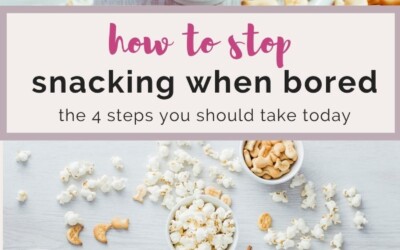

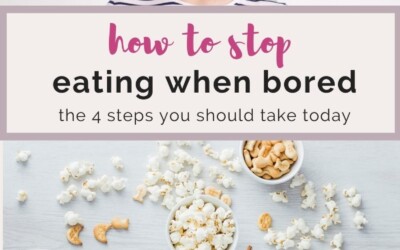
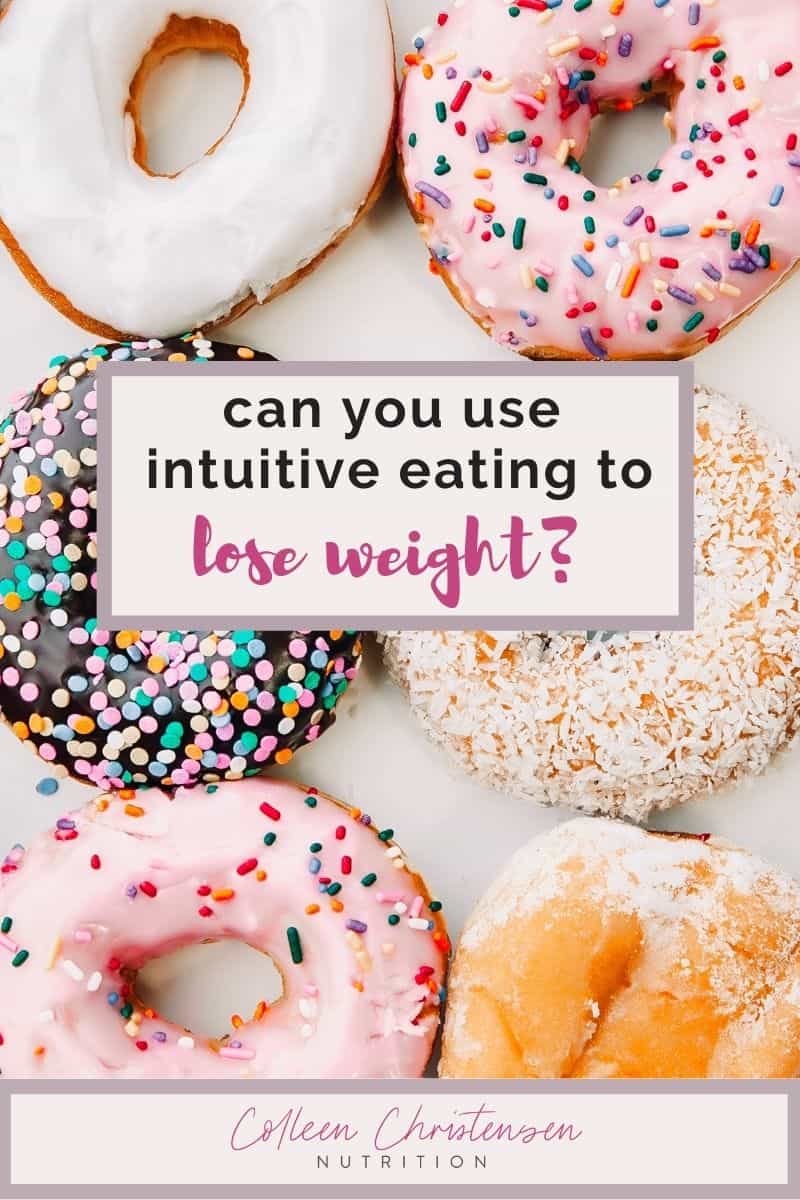

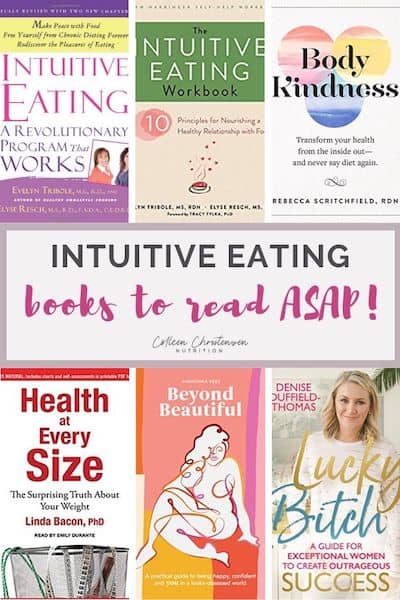
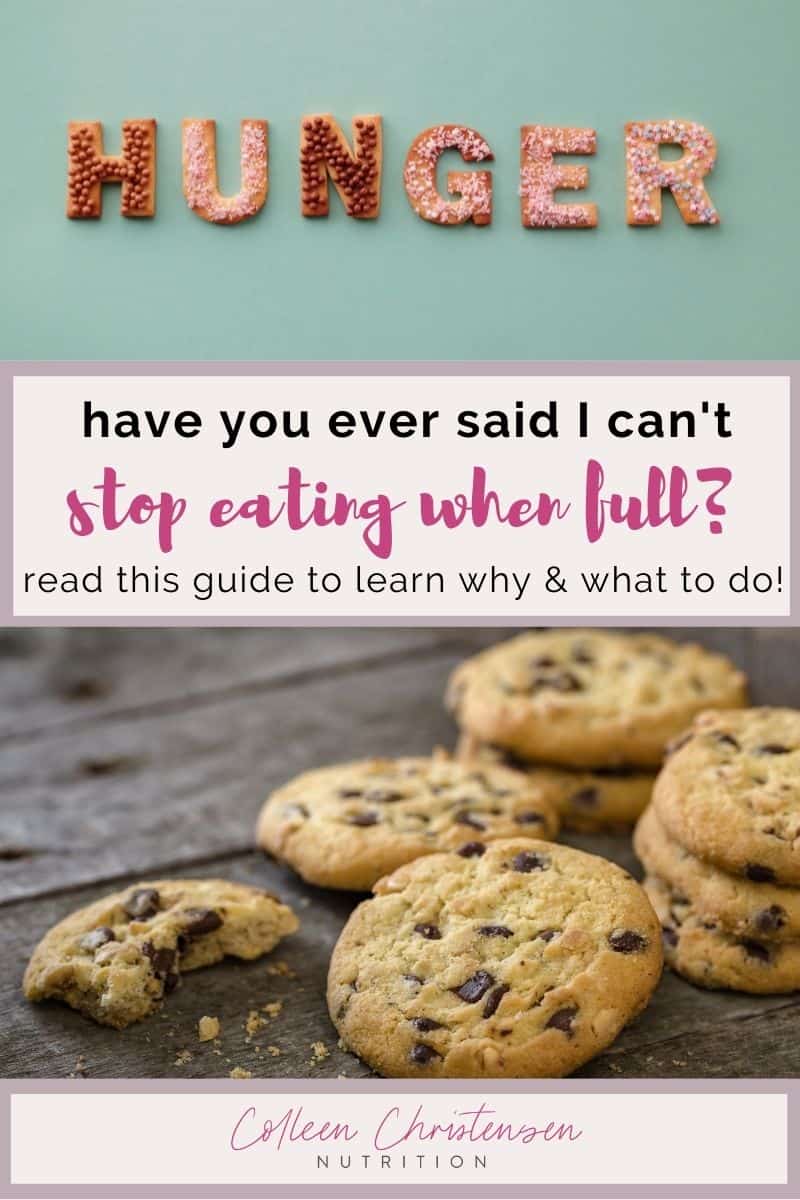

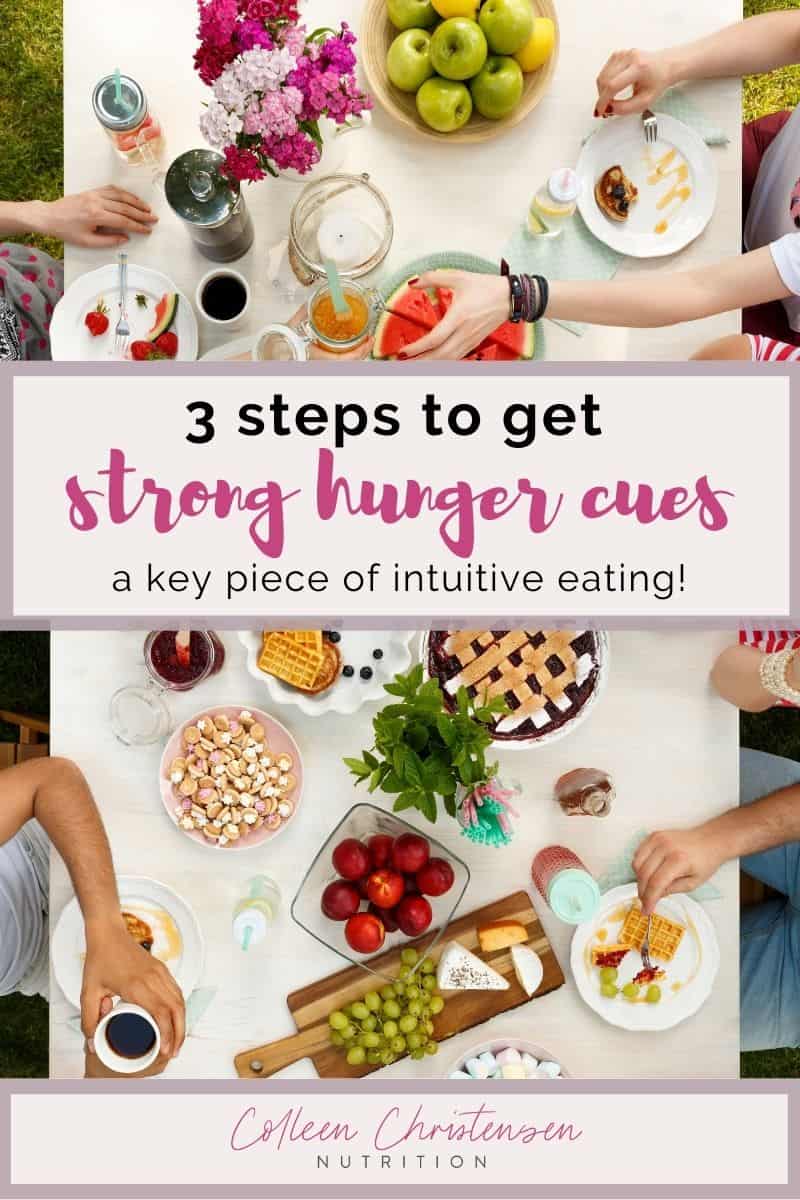


Liliane says
For me its eating while watching TV : p. I love your tip about making a list of things to do with each emotion, because its so much harder to think about it on the spot! thank you so much, this is brilliant!
Colleen says
YES! I did the same!